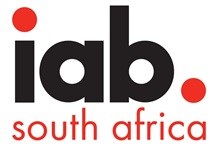






The Policy has far-reaching implications for free speech in South Africa and does not address a large number of operational challenges the FPB will face in attempting to implement and enforce it, against the backdrop of an increasingly digitally-enabled and -active population.
The Policy has attracted criticism and controversy, with a number of commentators calling into question its constitutionality, lawfulness and practicality. At its core, the policy requires the pre-classification, prior to publication, of any 'film, game or certain publication' according to the FPB's guidelines and explicitly includes within its scope user-generated content distributed via social media platforms. The definitions of 'film' and 'certain publication' are broad enough to cover video or content in almost any form (including news and current affairs content).
The FPB has further purported to grant itself vague and extensive censorship powers via a provision that requires, "with regard to any other content distributed online, the Board shall have the power to order an administrator of any online platform to take down any content that the Board may deem to be potentially harmful and disturbing to children of certain ages."
Anyone who publishes - or facilitates the publication of - content, be it Google, Apple and Facebook, South Africa's ISPs and news media and even individual bloggers and small businesses operating from bedrooms and basements, stands to be caught in the FPB's wide net.
The Draft Policy threatens not only the individual freedom of expression currently enjoyed by digitally-active South African businesses, but also poses an obstacle to the growth and health of the country's burgeoning online industry.
"We share some of the FPB's concerns relating to unfettered access of children to harmful and dangerous content on the internet," says Andrew Allison, Head of Regulatory Affairs at the IAB, "but we disagree with the manner in which the FPB is proposing to address this. The overwhelming majority of content disseminated via digital media is not harmful, and the mechanisms contained in the Draft Policy are unduly onerous and excessive."
The IAB will be making formal submissions to the FPB regarding the Draft Policy before the given deadline of 15 July 2015.
Allison adds, "Notwithstanding our issues with the Draft Policy, we have expressed our willingness to cooperate with the FPB in addressing our shared concerns, and are committed to working with them, and with other stakeholders and interest groups, to develop workable, fair and constitutionally-sound solutions."
Since 2014, the IAB has been working with the South African National Editors Forum (SANEF) and Press Council on a proposed revision of the Press Code and upgrades to the current Press Council to create a voluntary, self-regulatory body that will promote and demand high standards and quality of editorial content from local publishers, irrespective of the medium (print, online or otherwise) via which it is communicated.
Allison concludes, "We believe that this augmented Council will responsibly and properly address the majority of concerns that the FPB's Draft Policy is trying to tackle. As a collective of industry players across various sectors, we know that we are best placed and equipped to deliver a standard of content in South Africa that fairly balances our constitutionally-enshrined freedom of expression with our shared desire to protect our children from harmful material."